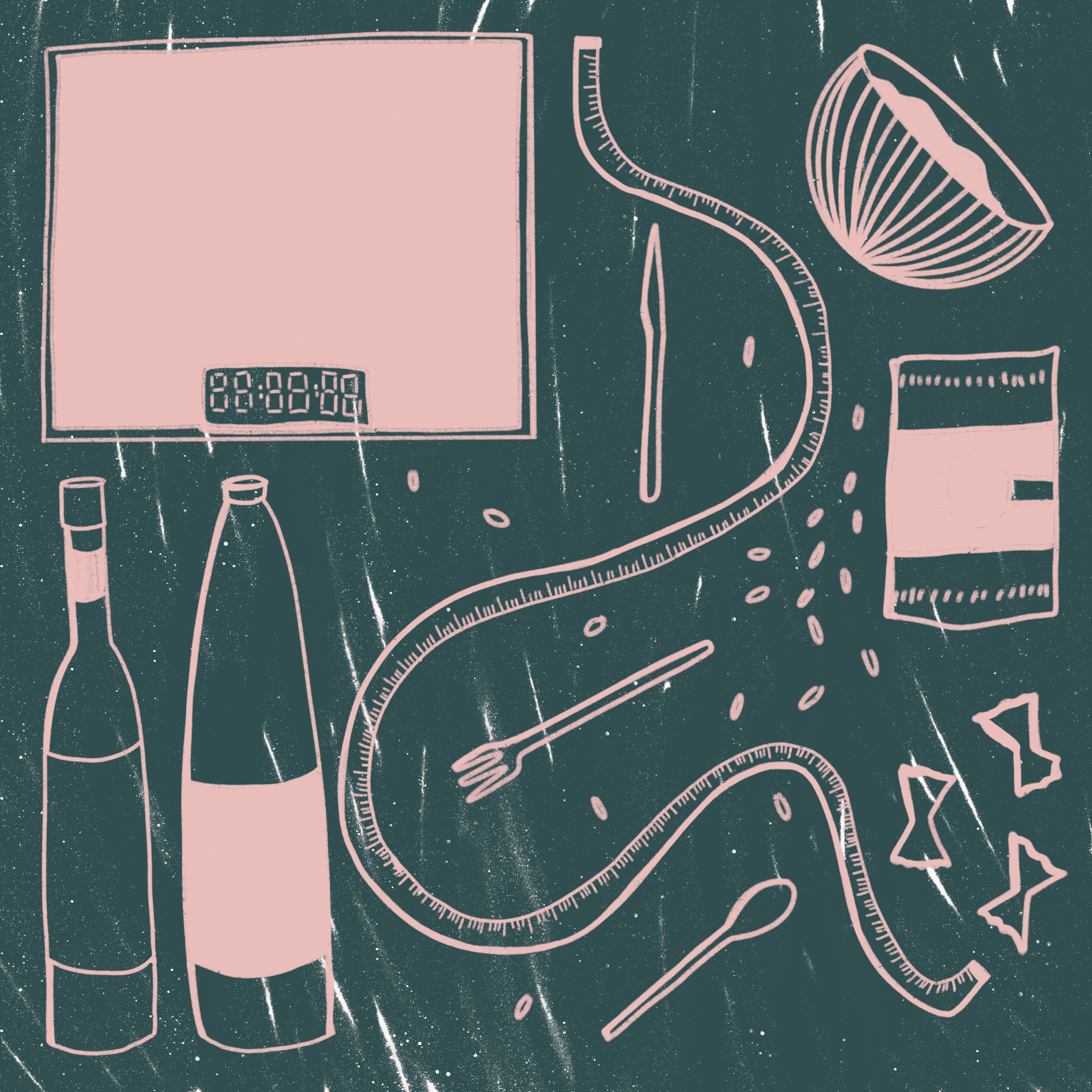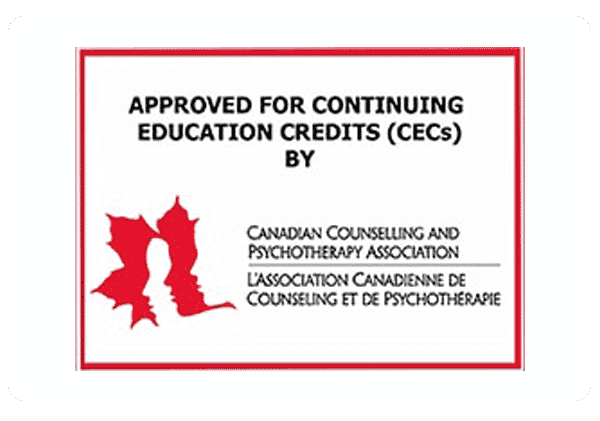4-Part Series: Mapping The Labyrinth: Navigating Your Client’s Recovery from An Eating Disorder Through a Somatic Lens – Rebecca Clegg
When you can decipher the “coded language” beneath eating disorder behaviors, you can help your client find themselves again. Following the path out of an eating disorder (recovery) can be looked at as walking a labyrinth that leads a person on the path back “home” – back into their body and towards authenticity.
This webinar series aims to encourage a new paradigm for the treatment of eating disorders; one where the personhood of the client is protected and the behaviors of the disorder are understood, seen with compassion, and healed through integration rather than elimination. This non-pathologizing, trauma informed lens allows us to view eating disorder behaviors as maladaptive coping mechanisms and wayward attempts to find regulation in the nervous system rather than pathological disorders.
Using this hypothesis as a lens for discovery, we will explore the body-mind connection inherent in all eating disorders and present an approach to this work that is client-centered, empowering, and hopeful. This series will explore in-depth the way trauma impacts the brain, disrupts attachment, and ultimately changes how an individual navigates the world through the lens of the development of eating disorder behavior.
This 4-part series includes webinars, case studies, and experiential activities that can help you transform your own perception of the eating disorder pathology, and help your clients walk the path of recovery through reconnecting to their bodies, minds, and hearts.
TRAINING information
When you can decipher the “coded language” beneath eating disorder behaviors, you can help your client find themselves again. Following the path out of an eating disorder (recovery) can be looked at as walking a labyrinth that leads a person on the path back “home” – back into their body and towards authenticity.
This webinar series aims to encourage a new paradigm for the treatment of eating disorders; one where the personhood of the client is protected and the behaviors of the disorder are understood, seen with compassion, and healed through integration rather than elimination. This non-pathologizing, trauma informed lens allows us to view eating disorder behaviors as maladaptive coping mechanisms and wayward attempts to find regulation in the nervous system rather than pathological disorders.
Using this hypothesis as a lens for discovery, we will explore the body-mind connection inherent in all eating disorders and present an approach to this work that is client-centered, empowering, and hopeful. This series will explore in-depth the way trauma impacts the brain, disrupts attachment, and ultimately changes how an individual navigates the world through the lens of the development of eating disorder behavior.
This 4-part series includes webinars, case studies, and experiential activities that can help you transform your own perception of the eating disorder pathology, and help your clients walk the path of recovery through reconnecting to their bodies, minds, and hearts.
Module 1
Mapping the Labyrinth: Shifting the Paradigm – Rethinking the Approach to Eating Disorder Treatment
This module explores the traditional approaches used to treat eating disorders and identifies the problematic aspects of these approaches. We will explore the ties to patriarchal and oppressive systems in place during the origin of the theoretical approaches to eating disorder treatment, and shed light on the need to update these systems based on modern day needs and science based, trauma-informed research. This module will establish the need for the holistic approaches presented in modules 2-4 and establish the possibilities that a new paradigm of treatment holds.
Learning Objectives:
- Identify problematic aspects of traditional eating disorder treatment and counseling and how and why they do not support a holistic, trauma informed model of care.
- Form a foundational understanding of ways in which traditional counseling approaches are informed and influenced by patriarchal, hierarchal, oppressive systems and how that affects the process of building safe relationships between therapist and client.
- Establish a need for a new paradigm within the theory and overall approach taken by therapists when working with trauma that is non-shaming, non dichotomous and non-pathologizing.
- Introduce the foundations of the new ‘path’ of recovery, deepening the understanding of what it means for an approach to be trauma and polyvagal theory informed, somatically oriented and holistic.
Module 2
Mapping the Labyrinth: Revealing the true identity of the Eating Disorder Behaviour
In module 2, we will explore how a holistic, somatic approach to treating eating disorders takes the focus off of pathology and re-introduces the client to their body in a way that allows them to see the body as a resource, instead of an enemy. Revealing the true identity of the eating disorder behavior as a maladaptive coping skill, rather than something “wrong” within the person encourages the client to see the wisdom in the behavior, and the intelligence held within the instinct towards survival. This reframe begins the process of helping the client learn how to trust and befriend the, establish a compassionate relationship with the ‘parts’ that hold their trauma, and connect that to the wisdom in the body.
Learning Objectives:
- Learn and experience the use of metaphor and imagery-based interventions to help clients explore their eating disorder behaviors as maladaptive coping mechanism
- Explore internalized belief systems that exist within the schema of the eating disorder self
- Develop knowledge of somatic responses to trauma and how this relates to eating disorder behaviors
- Conceptualize the framework of recovery as a path towards body re-connection by way of case study designed to identify the process of discovery through the lens of trauma reenactment and coping.
Module 3
Mapping the Labyrinth: Mapping the Path Back to the Body
In keeping with a trauma informed approach, before we actively explore the narrative of trauma, it is imperative that we teach our clients the skills necessary for them to resource themselves when and if they are feeling dysregulation. This module will take a deep dive into a foundation of how to use somatic interventions to teach polyvagal theory informed nervous system regulation skills to clients. In addition, Attendees will learn how to use somatic awareness and skills to tend to and regulate their own nervous system and create a calming sensory environment which in turn will help them to create a “container of safety” for their clients during the therapeutic process.
Learning Objectives:
- Develop knowledge of evidenced based research regarding the nervous system, polyvagal theory, and its applications for the treatment of eating disorder behaviors
- Learn skills to reconnect signals of safety in the body as a way of befriending the body
- Establish working knowledge of how using this approach both empowers the client to trust themselves, as well as see the wisdom they have access to in their body.
Module 4
Mapping the Labyrinth: Finding the Way Home
Building off of the foundation created in module 3, this module will present interactive videos that teach somatic exploration and experiential techniques that can be used to help clients reconnect with their body through accessing safety within their body. Techniques taught will explore creative interventions designed to help clients explore the narratives presumably tied to the eating disorder behaviors that have been stored within the body.
Learning Objectives:
- Learn somatic skills to help your clients discover the felt sense of safety within their body
- Deepen your knowledge of somatic exploration techniques designed to help clients reconnect safely with their bodies
- Learn how to relate body parts to ego-state “parts” in an effort to befriend, resource and integrate these into a more cohesive, holistic system.
About Rebecca
 Becca Clegg is somatic psychotherapist and author. She is a certified eating disorder specialist and supervisor (CEDS-S), and the Clinical Director of Authentic Living Counseling and Wellness, an Atlanta, GA based private practice specializing in holistic psychotherapy and somatic healing. In addition to her clinical practice, Becca is also a writer and speaker, and presents nationally, educating families, clients and clinicians on the treatment of trauma, eating disorders and somatic healing. She is the author of the book, Ending the Diet Mindset: Reclaim a Balanced Relationship with Food & Body Image, and the host of The Inner Alchemy Podcast, which educates its listeners on the vast array of healing modalities available for self-development and recovery. She holds workshops and retreats, and offers teaching and resources for both clients and professionals, all of which can be found on her websites, www.rebeccaclegg.com and www.authenticlivingatl.com.
Becca Clegg is somatic psychotherapist and author. She is a certified eating disorder specialist and supervisor (CEDS-S), and the Clinical Director of Authentic Living Counseling and Wellness, an Atlanta, GA based private practice specializing in holistic psychotherapy and somatic healing. In addition to her clinical practice, Becca is also a writer and speaker, and presents nationally, educating families, clients and clinicians on the treatment of trauma, eating disorders and somatic healing. She is the author of the book, Ending the Diet Mindset: Reclaim a Balanced Relationship with Food & Body Image, and the host of The Inner Alchemy Podcast, which educates its listeners on the vast array of healing modalities available for self-development and recovery. She holds workshops and retreats, and offers teaching and resources for both clients and professionals, all of which can be found on her websites, www.rebeccaclegg.com and www.authenticlivingatl.com.
CPD / CE
CPD / CE / NBCC credits: 1 for each module








